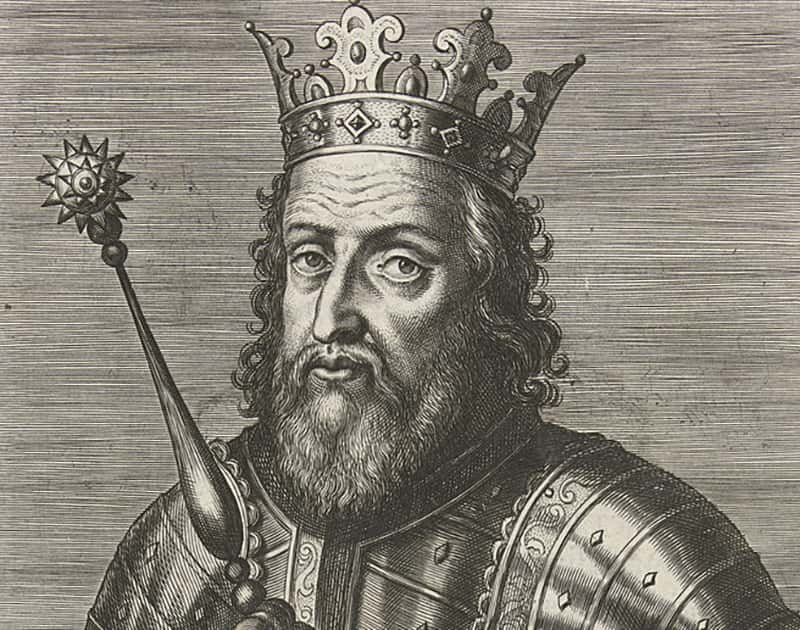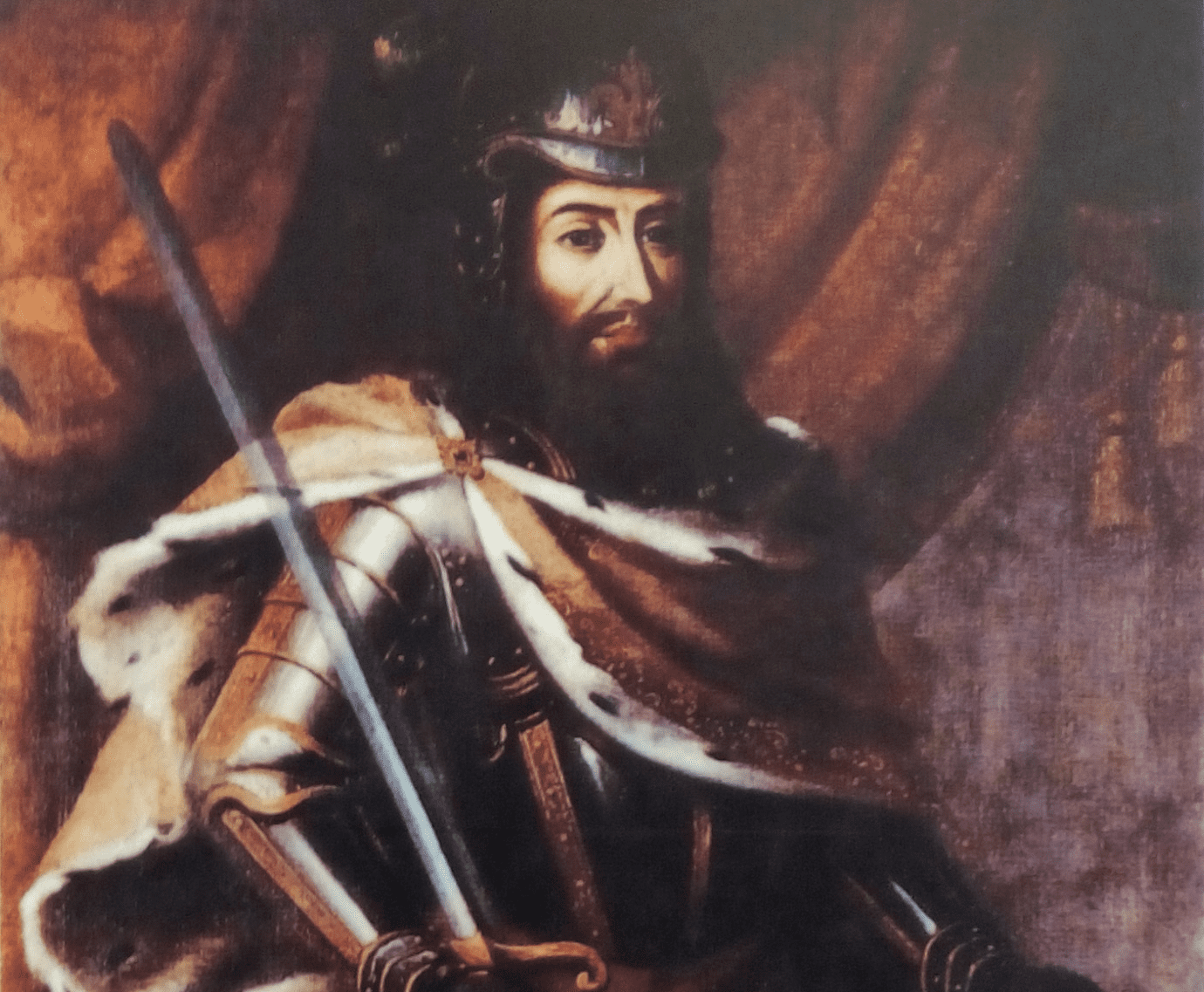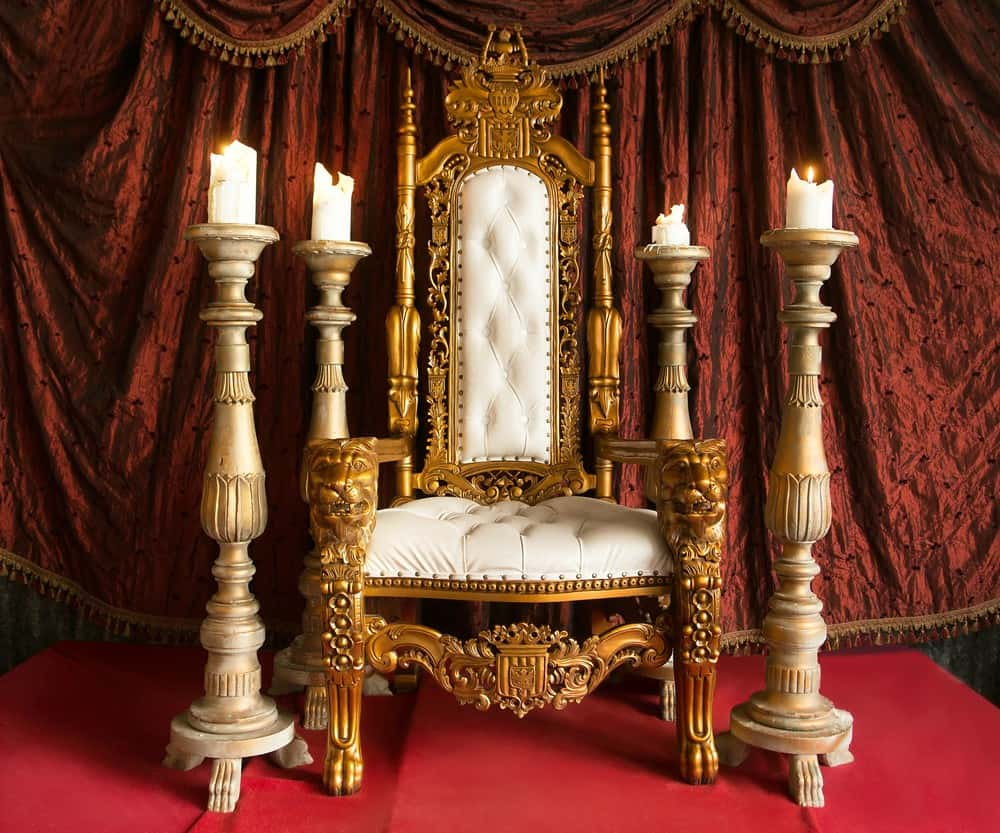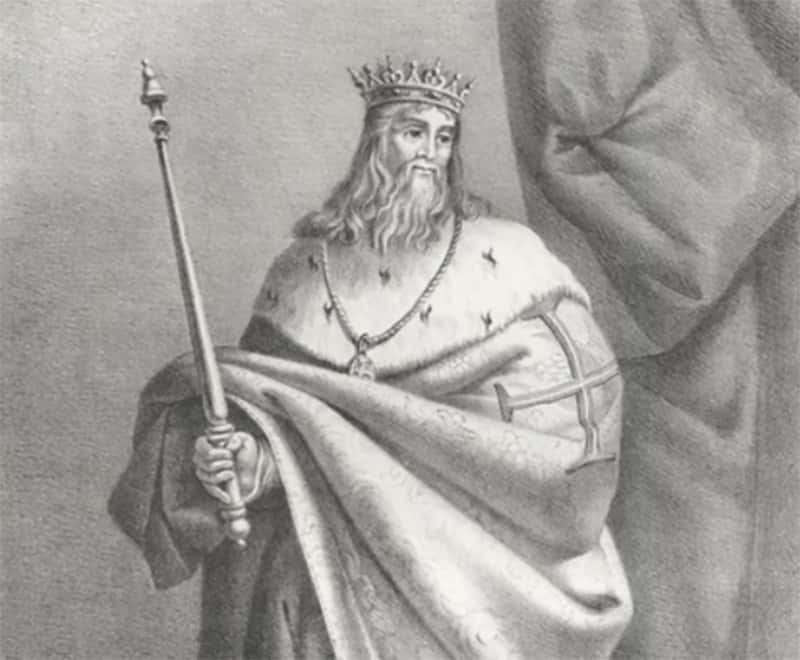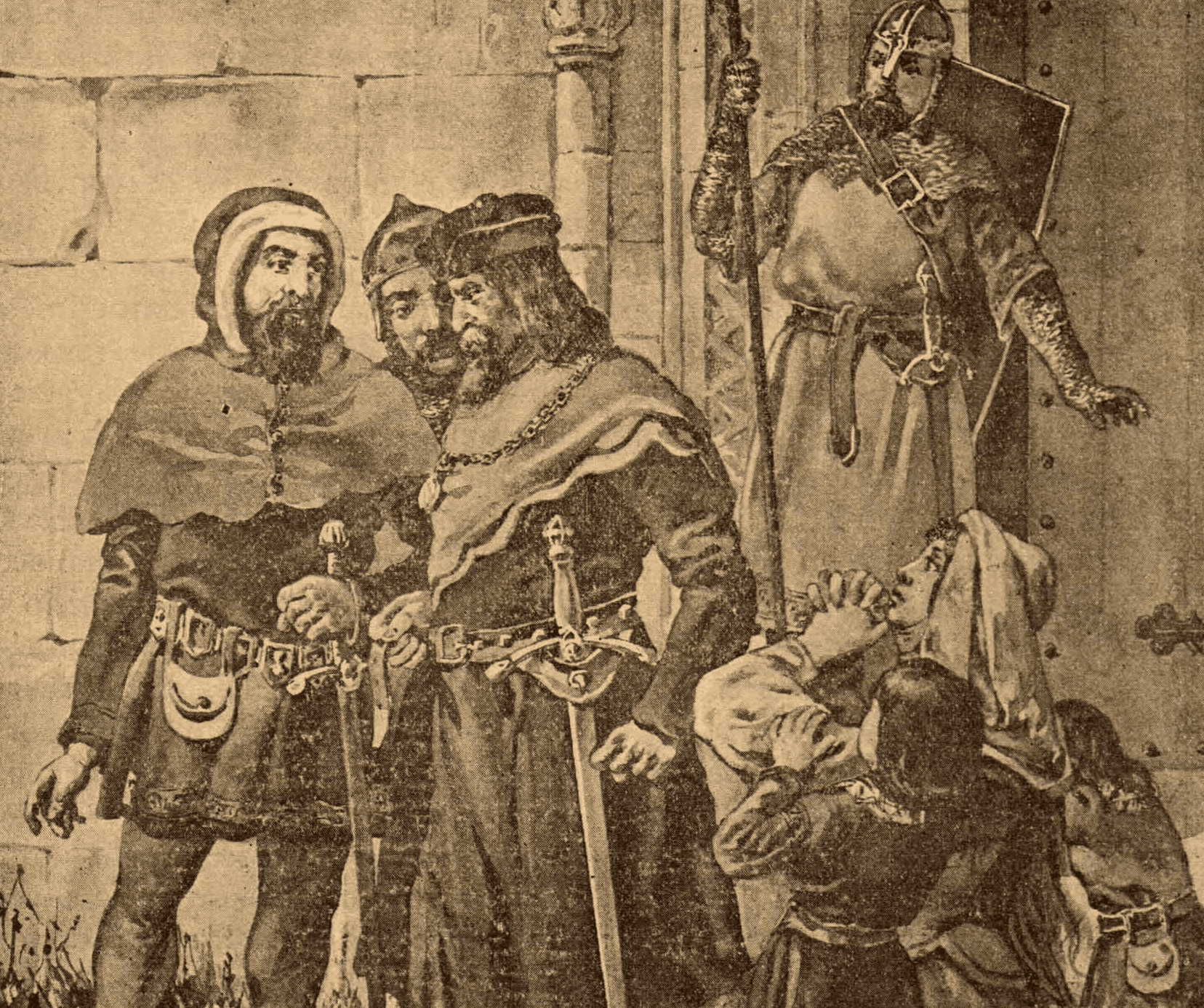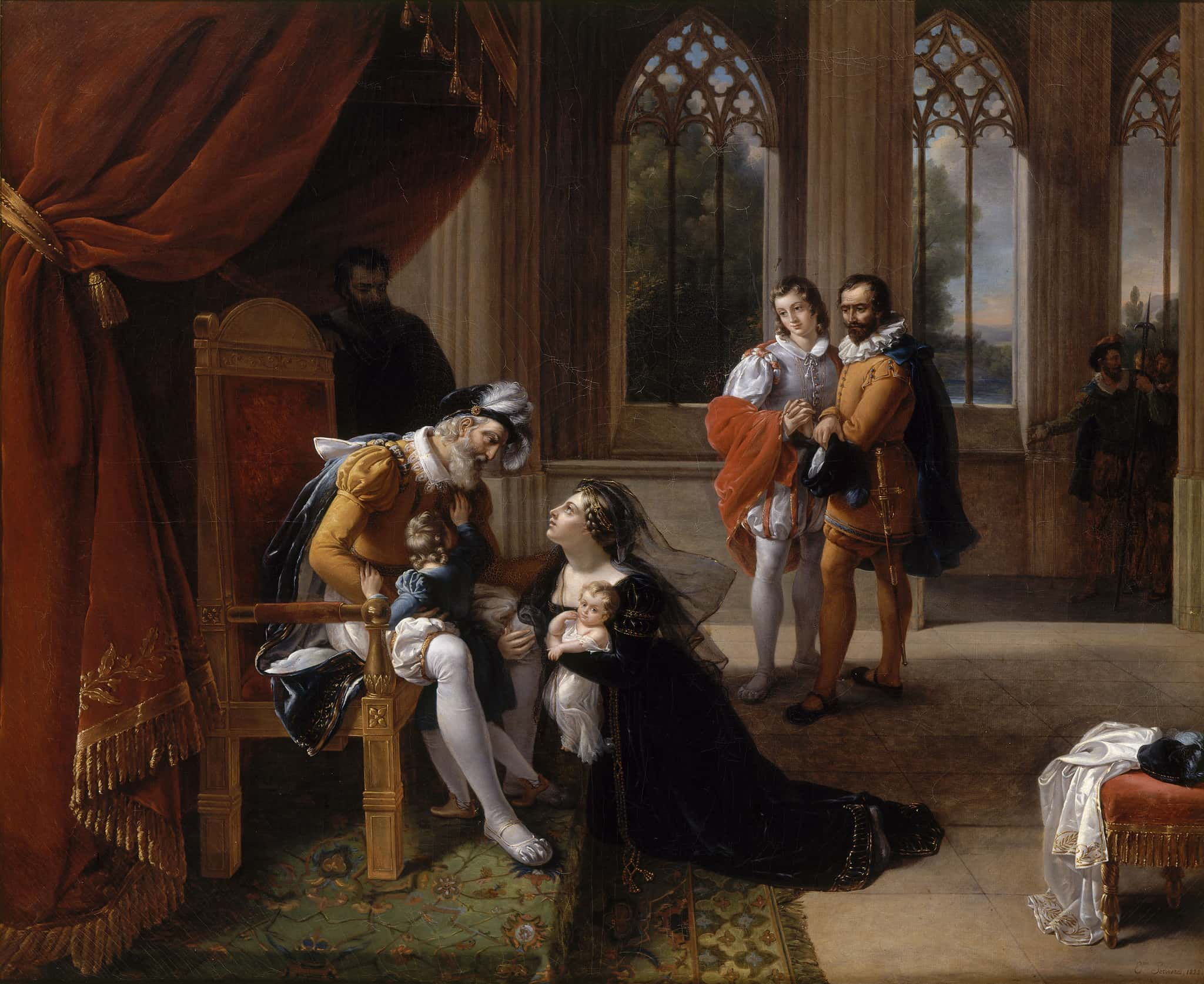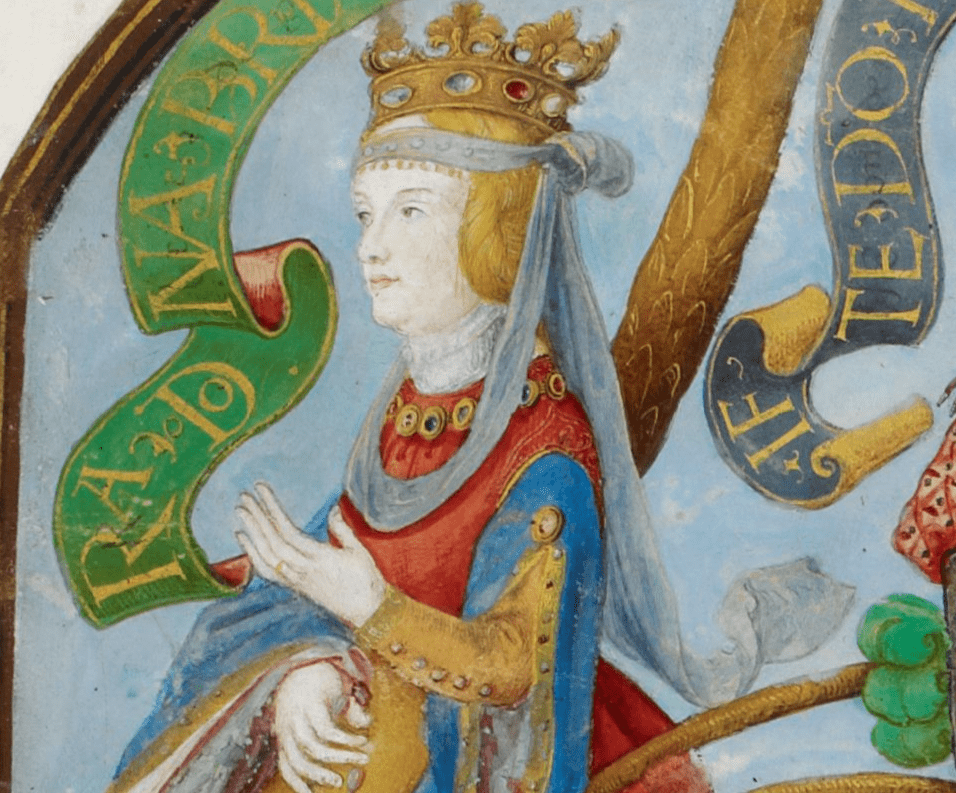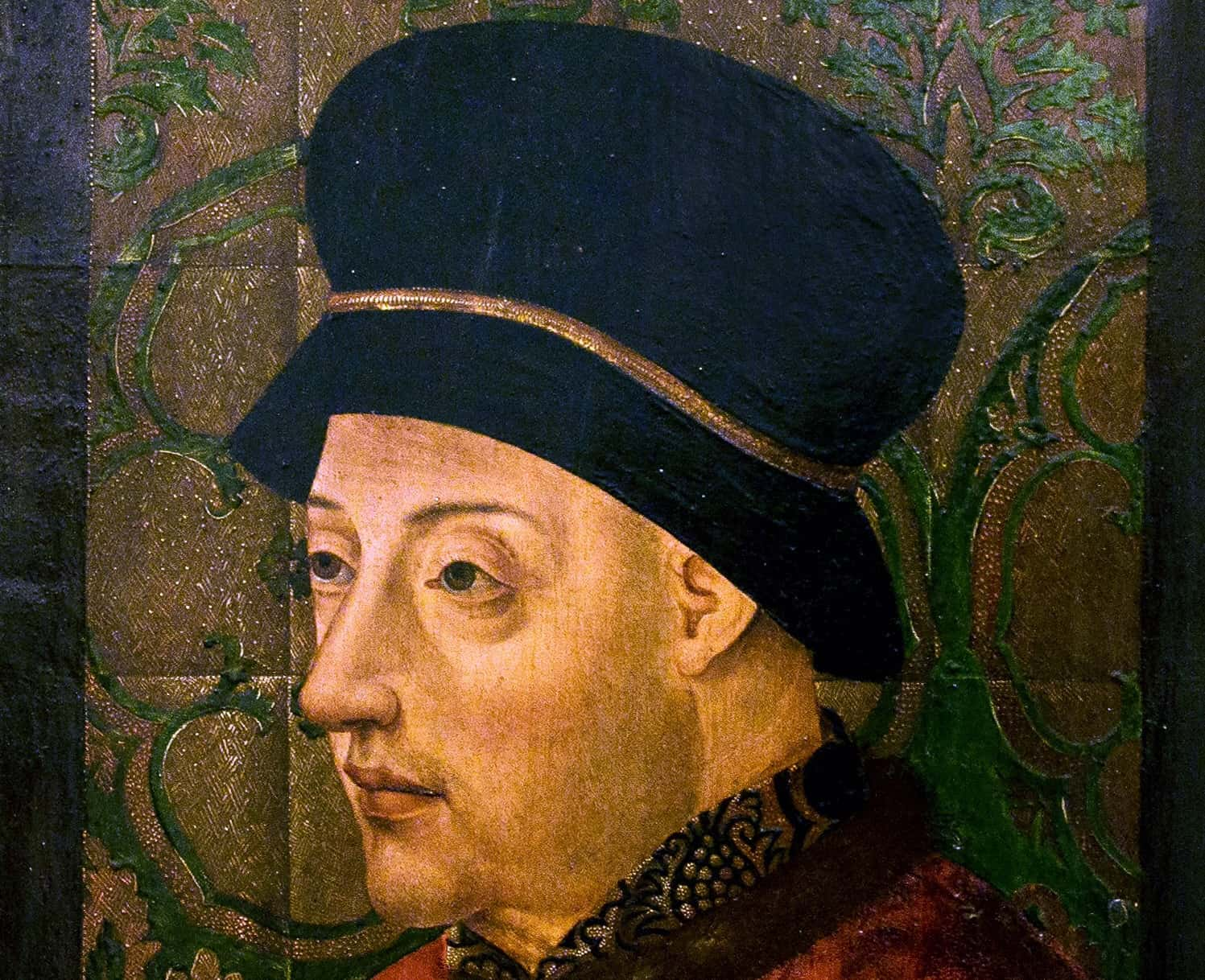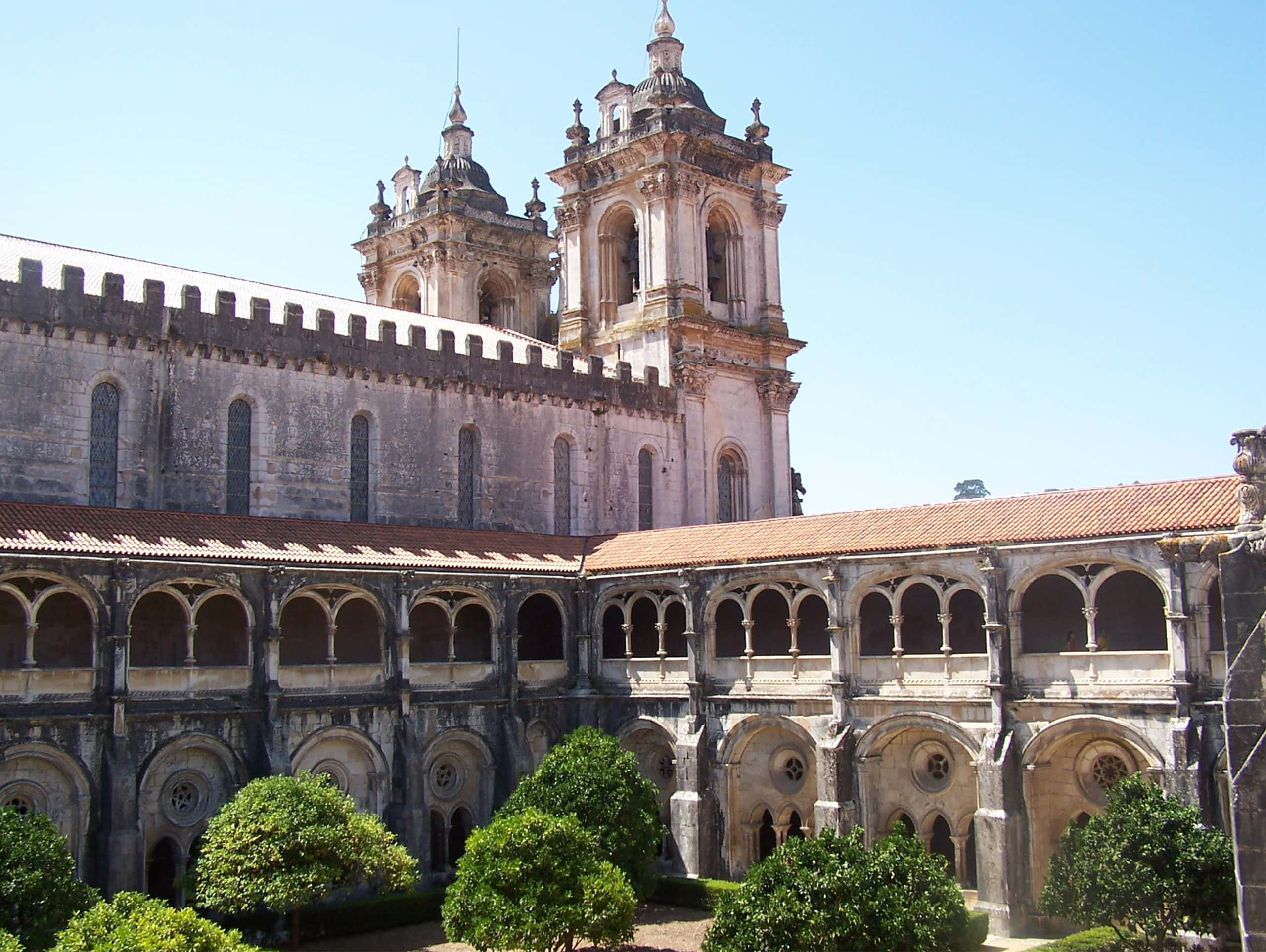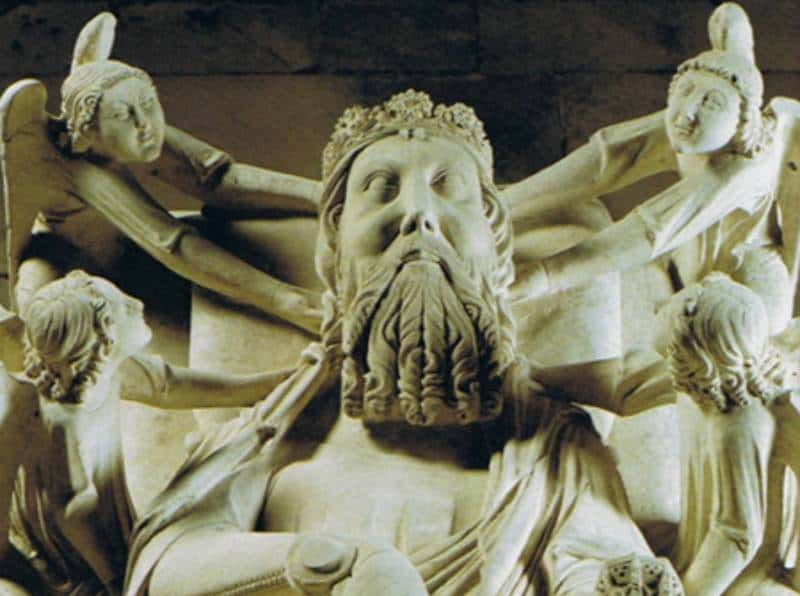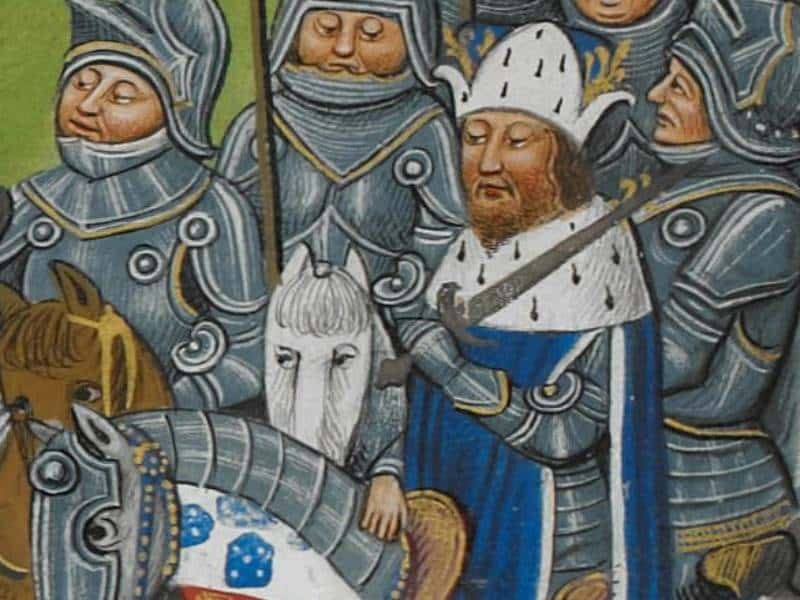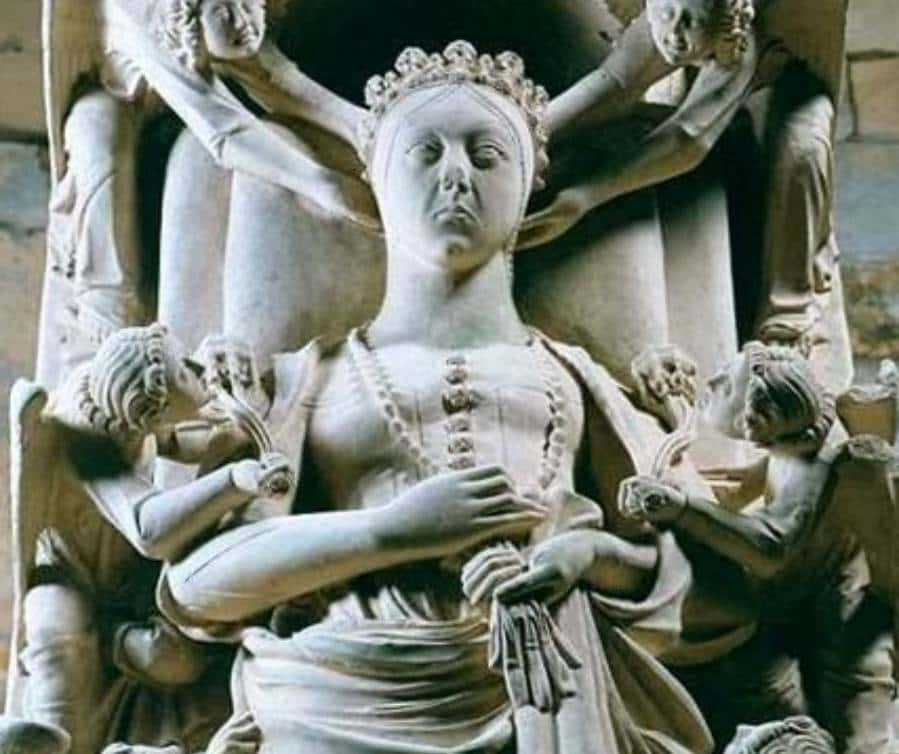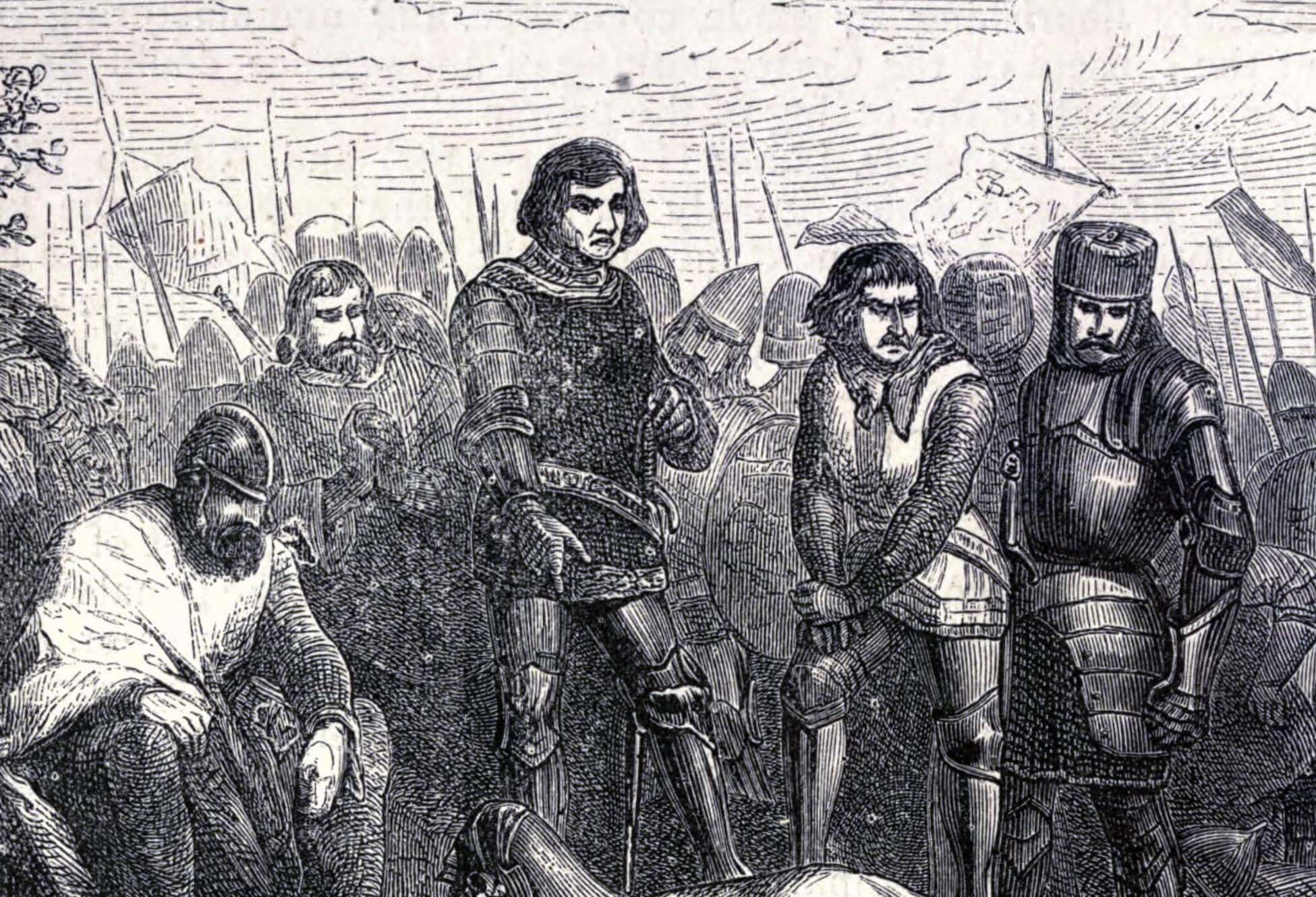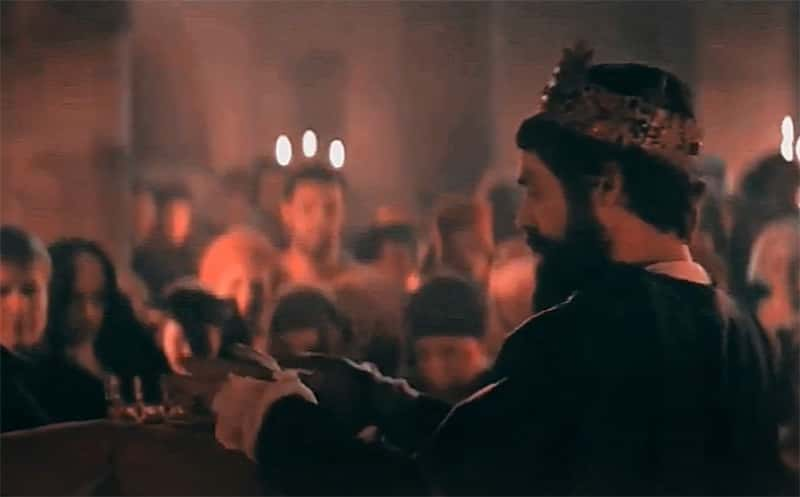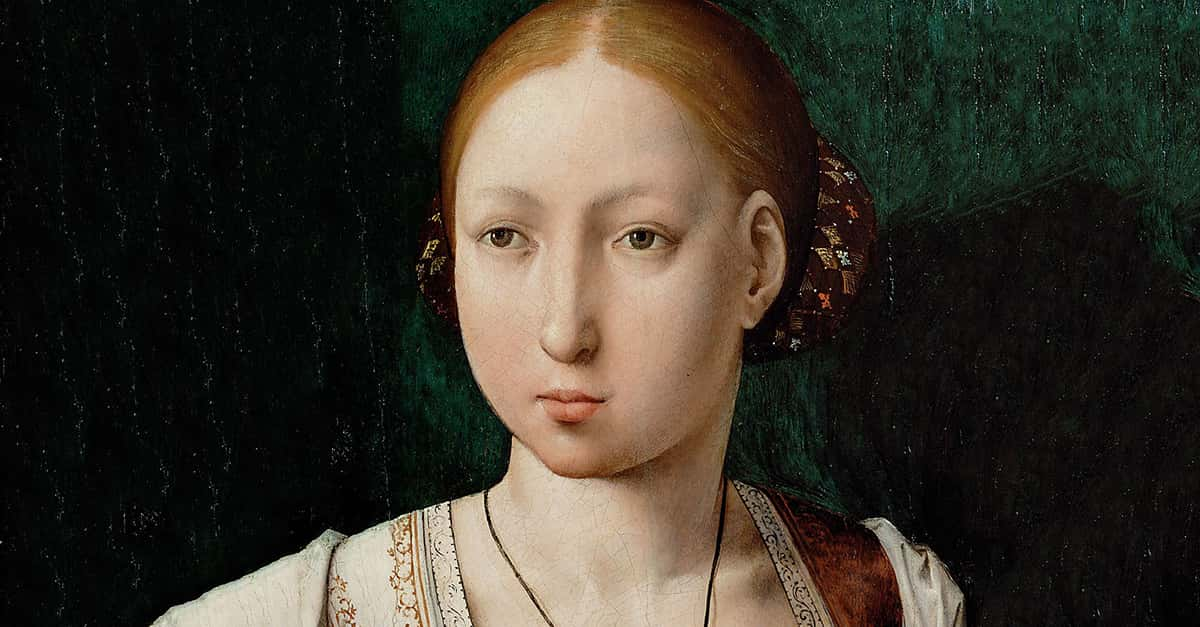A Love Story More Twisted Than Any Shakespearean Tragedy
Romeo and Juliet has nothing on the tale of Peter I of Portugal and his lady love, Inês de Castro. Passion, drama, blood, and despair mark this tragic real-life story. When Inês was killed, Peter vowed revenge—and when he got it, it was so disturbing, it’s unforgettable. And if that's not enough, what he did with her corpse was even more horrifying.

1. He Was Born A Pawn
Being the rightful heir to the Kingdom of Portugal sounds like a pretty sweet deal on the surface, but Peter may beg to differ. Born on April 8, 1320, to Afonso IV of Portugal and Beatrice of Castile, Peter quickly found himself the pawn in a game of political intrigue and marriage alliances, even before he hit his teenage years. What exactly happened, you ask? Buckle up—you’re in for a ride.
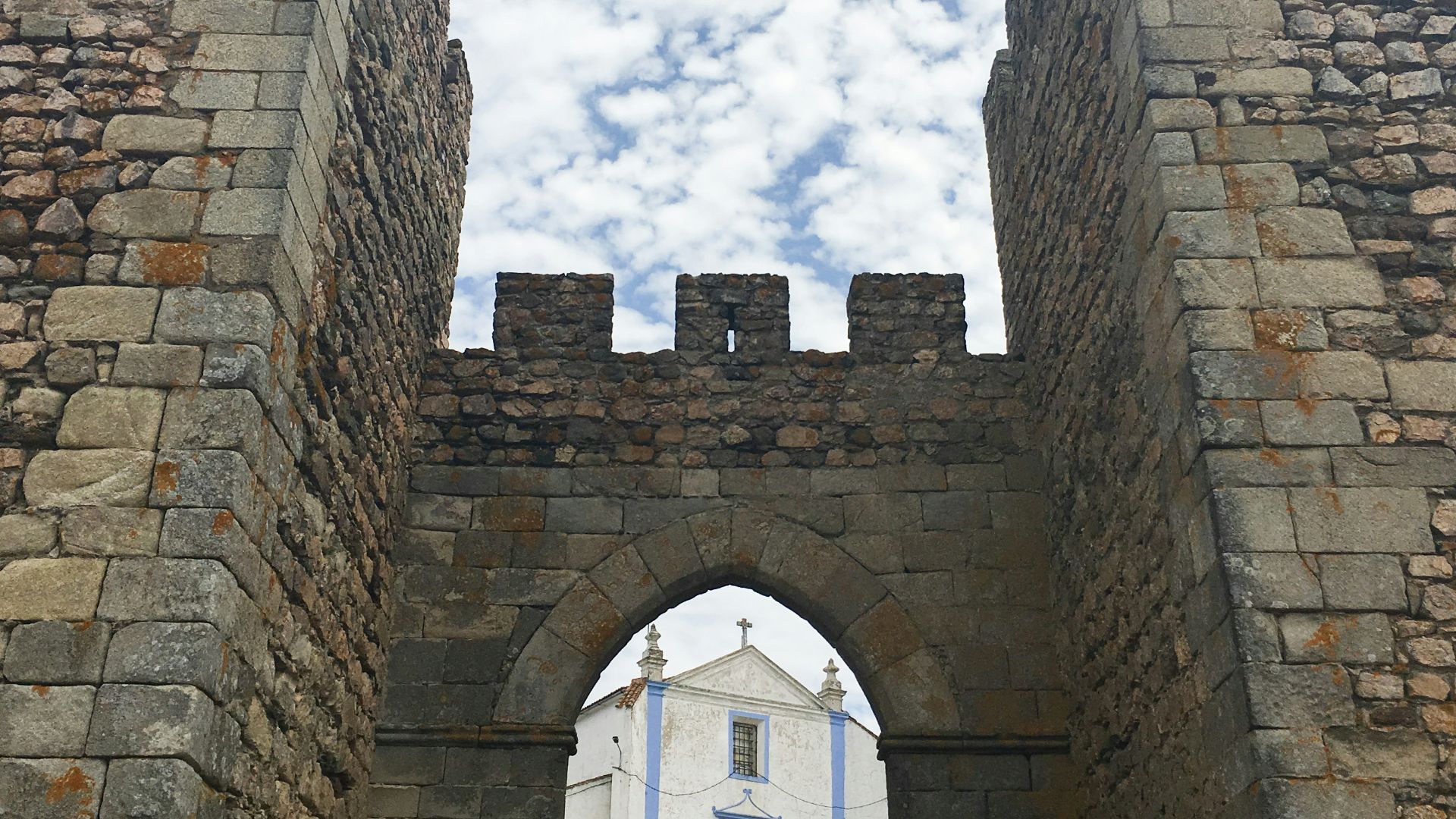 Look Up Look Down Photography on Unsplash
Look Up Look Down Photography on Unsplash
2. He Was Used For Revenge
When little Peter I of Portugal was just eight years old, his older sister, Maria, was betrothed to Alfonso XI of Castile in a bid to strengthen the relationship between their families. Sadly, the fledgling alliance quickly fell apart when Maria’s new hubby started a very public affair with a mistress, dishonoring Maria and, by extension, her entire family. Enraged, Peter’s father hatched a revenge plot—which Peter became an unwilling participant of.
3. His Father Chose His Bride Wisely
Peter’s father was the type of man who knew how to push someone’s buttons, which is why he arranged for Peter to be married off to a young woman named Constanza Manuel of Vilena. It was a brilliant move; Constanza was the daughter of Alfonso XI’s greatest rival, Juan Manuel of Villena. Not only did Peter’s father make a powerful political alliance through this marriage, but he also publicly aligned himself with a family that Alfonso XI of Castile had a personal beef with. Genius!
Now, if only Peter did what he was told…
4. He Didn't Meet His Wife Until Years After The Wedding
Credit where credit is due, Peter I of Portugal did marry Constanza Manuel of Vilena in 1336, although they didn’t actually meet each other in real life until years later. At the time, Portugal was completely ravaged by fighting, so cross-country journeys were a no-go. He was, by all accounts, trying to be a good son.
Just four years later, the two met for real during a time of relative peace. That’s when the trouble began.
5. He Had Eyes For Someone Else
In 1340, Constanza finally made the trip to see Peter with her entourage in tow. At first, all seemed well—Peter found his wife suitable enough, considering he didn’t actually get to choose his bride. But minutes later, everything changed in an instant. Peter laid his eyes on Inês de Castro, one of Constanza’s ladies-in-waiting—and the greatest love story of Portuguese history began.
 The Dead Queen (2018), Persona Non Grata Pictures
The Dead Queen (2018), Persona Non Grata Pictures
6. He Fell Deeply In Love
It’s hard to say what it was about Inês that caught Peter’s attention. Perhaps it was her fair, milky-white skin, or her halo of gold-blonde hair. Maybe it was the way her bright blue eyes stared back into his own. Either way, Peter fell in love, and he fell hard. Poor Constanza was already a distant memory. The young man would pay any price to be with the love of his life, and the price he paid was high.
 The Dead Queen (2018), Persona Non Grata Pictures
The Dead Queen (2018), Persona Non Grata Pictures
7. It Was Legendary
Despite being married to Constanza, Peter laid his heart out at Inês’s feet. Legends say that he wrote love letters to Inês, which he sent through a pipe system that connected the estate of Quinta do Pombal to the Monastery of Santa Clara-a-Velha, where Inês lived. They even met in the gardens of Quinta das Lágrimas for romantic dates away from prying eyes. Except, well, they didn’t exactly do a good job at keeping their romance a secret…
 The Dead Queen (2018), Persona Non Grata Pictures
The Dead Queen (2018), Persona Non Grata Pictures
8. His Love Affair Caused Serious Trouble
To say that Peter and Inês’s "secret" love affair caused an uproar is a bit of an understatement. Not only did Peter’s love affair throw his father’s revenge plot completely out the window, but it also put their alliance with Constanza’s family in grave peril. Without their support, armed conflict could’ve broken out between Portugal and Castile, which no one in the Portuguese court liked the idea of.
And an imminent battle wasn’t the only issue caused by Peter’s affair…
 The Dead Queen (2018), Persona Non Grata Pictures
The Dead Queen (2018), Persona Non Grata Pictures
9. Everyone Turned Against Him
Peter’s father held onto the tenuous hope that Peter’s passion for Inês was little more than puppy love, but Peter’s next move completely crushed him. As Peter and Inês grew closer, he started to get real chummy with her brothers, who were exiles from the Castilian court. Soon, Inês’s brothers were more than just friends.
They became Peter I of Portugal’s closest advisors, much to the disapproval of the Portuguese royal court. How did Peter manage to prevent the court from turning on him entirely? Well, he managed to do at least one thing right.
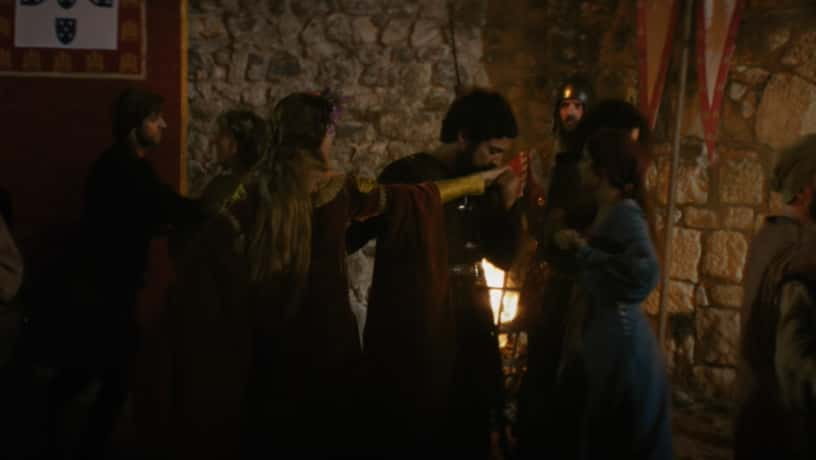 The Dead Queen (2018), Persona Non Grata Pictures
The Dead Queen (2018), Persona Non Grata Pictures
10. He Did The Bare Minimum
Although Peter had very little interest in spending time with Constanza, it seems that he didn’t entirely neglect her, or his duties as a prince. They did, at the very least, consummate the marriage, and had a son by the name of Luís. Despite the affair, Peter was technically carrying out his duty, so that quelled some of the grumblings in court. Peter’s wife, however, was not so easily silenced.
11. She Caught Them In A Trap
In an effort to put an end to Peter and Inês’s affair, Constanza invited Inês to become little Luís’s godmother. This put Peter’s paramour in a terribly tricky situation. If she accepted, the Catholic Church would see Inês as a member of Peter’s family, making their affair not just sinful, but completely against Church doctrine. If Inês refused, she would be dishonoring her mistress. Constanza had Inês driven into a corner—or so she thought.
 The Dead Queen (2018), Persona Non Grata Pictures
The Dead Queen (2018), Persona Non Grata Pictures
12. Her Trap Totally Failed
Despite Constanza’s scheming, Peter completely bucked her expectations by continuing to see Inês, even after she became Luís’s godmother. Peter was not about to let anything stand in between him and Inês—in fact, he eventually one-upped Constanza by having four illegitimate children with Inês, three of which thrived under their care. Soon, it became all too much for Constanza, and tragedy struck.
 The Dead Queen (2018), Persona Non Grata Pictures
The Dead Queen (2018), Persona Non Grata Pictures
13. He Lost His Wife
Peter’s poor, beleaguered wife managed to give Peter two more children, named Maria and Fernando, but soon, her story came to a tragic close. In 1345, just weeks after giving birth to Fernando, Constanza passed on. Peter, for his part, barely batted an eye at the news of his wife’s demise. If anything, Peter I of Portugal celebrated his good fortune, and he wasn’t exactly tactful about it.
14. He Ran Off With His Lover
The scandal of the affair caused Peter’s father to banish Inês from the court in the aftermath of Constanza’s passing, but if he thought this would stop Peter from seeing the love of his life, he didn’t know his son very well. In response to Inês’s banishment, Peter ran off to be with Inês in Santa Clara-a-Velha, where the two lived as a married couple.
As you can imagine, Peter’s father was livid.
 The Dead Queen (2018), Persona Non Grata Pictures
The Dead Queen (2018), Persona Non Grata Pictures
15. He Tried To Be Peaceful
Despite his anger, Peter’s father did attempt to (sort of) meet Peter in the middle. Instead of ordering him to marry someone without his consent, he suggested multiple princesses from powerful families that would be an advantageous match for Peter. Peter I of Portugal, however, only had eyes for Inês. In fact, Peter, being the single-minded person he is, actually asked his father for the most outrageous request of the century.
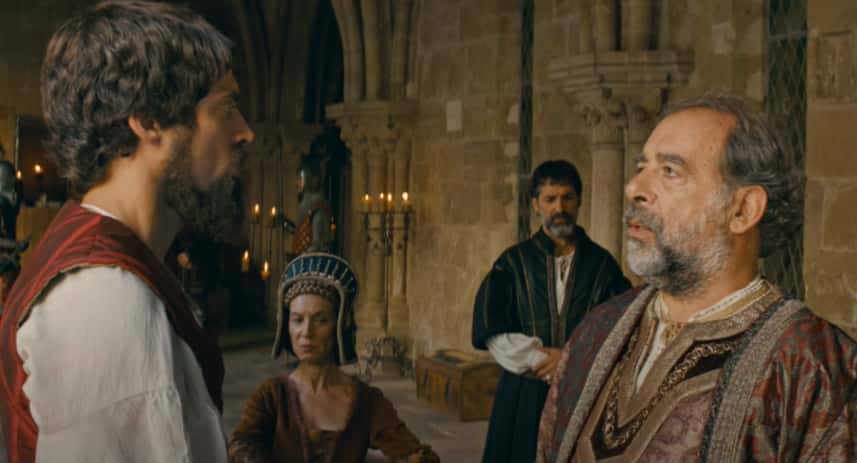 The Dead Queen (2018), Persona Non Grata Pictures
The Dead Queen (2018), Persona Non Grata Pictures
16. He Denied Their Marriage
In a move that just screams "tone-deaf," Peter asked his father if he could, pretty please, marry Inês de Castro. The answer Peter got was a loud, resounding, "heck no!" Marrying Inês had very little strategic value for Peter, and when you’re royalty, marriage is all about making strong alliances. And that barely scratched the surface of why, politically speaking, marrying Inês was a very bad idea for Peter.
17. Her Brothers Took Over
Remember how Peter and Inês’s brothers were getting really friendly with each other? Well, it turned out Peter’s friendship made Inês’s brothers quite bold, and the pair of them became embroiled in a plot to overthrow the Castile government. Needless to say, this revelation caused even more members of the court to be against Peter’s marriage to Inês, and the fact that her brothers dragged Peter into their plot didn’t help.
 The Dead Queen (2018), Persona Non Grata Pictures
The Dead Queen (2018), Persona Non Grata Pictures
18. He Claimed A Foreign Throne
Inês’s brothers came up with a devious plan. They then presented it to Peter: they told him that he should totally claim the throne of Castile. Now, this idea wasn’t completely out of left field; Peter was the grandson of King Sancho IV of Castile, and technically had a claim to the throne. And hey, the more countries to govern, the more powerful you are, right?
Well, in Peter’s case, this wasn’t exactly true.
19. He Angered His Court
Sure, claiming the throne of Castile granted Peter I of Portugal more power, but no one in the Portuguese royal court had any interest in being dragged into the dynastic quarrels of Castile. In fact, Portugal was enjoying a period of relative peace, so starting a petty fight for Castile’s throne didn’t sound appealing to anyone. Peter likely knew this. Unfortunately for everyone around him, Peter decided to usurp the throne anyway.
20. He Threw Away His Future
At the urging of Inês’s brothers, Peter I of Portugal made a claim for the throne of Castile. With that, it became crystal-clear to everyone around him that Inês and her family had Peter wrapped around their little fingers; if things continued on like this, the future of the Portuguese royal family was a bleak one. Still, Peter’s father refrained from making any truly drastic moves—that is, until he had a terrifying revelation.
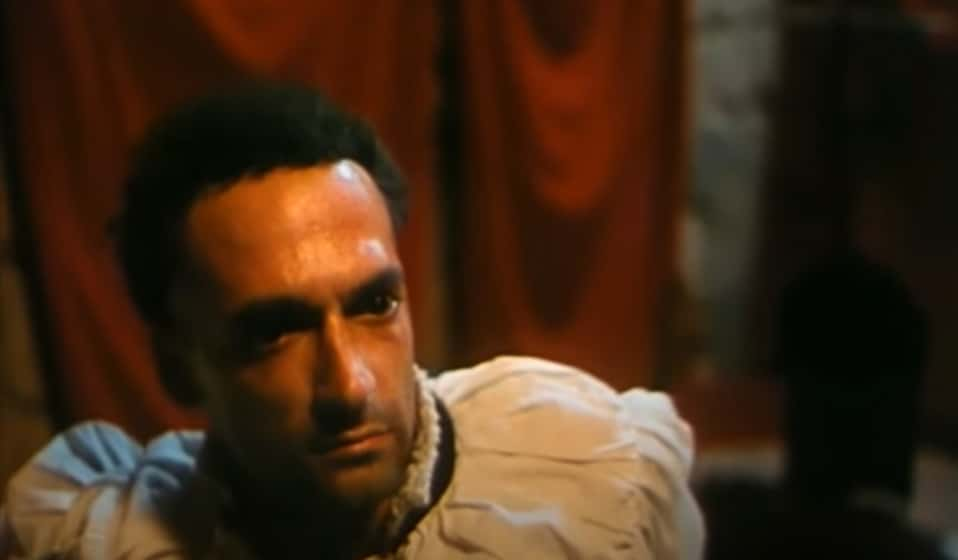 Ines of Portugal (1997), Instituto Português da Arte Cinematográfica e Audiovisual
Ines of Portugal (1997), Instituto Português da Arte Cinematográfica e Audiovisual
21. His Family Was In Turmoil
By the mid-1350s, Peter’s illegitimate children were lively, healthy, and happy. While most would celebrate the idea of having healthy and happy grandchildren, Peter’s father wasn’t too thrilled. You see, Peter’s legitimate heir, Fernando, was a sickly and frail child, and Peter’s father feared that Peter’s illegitimate children may seize this chance to usurp the throne. And that wasn’t the biggest problem either.
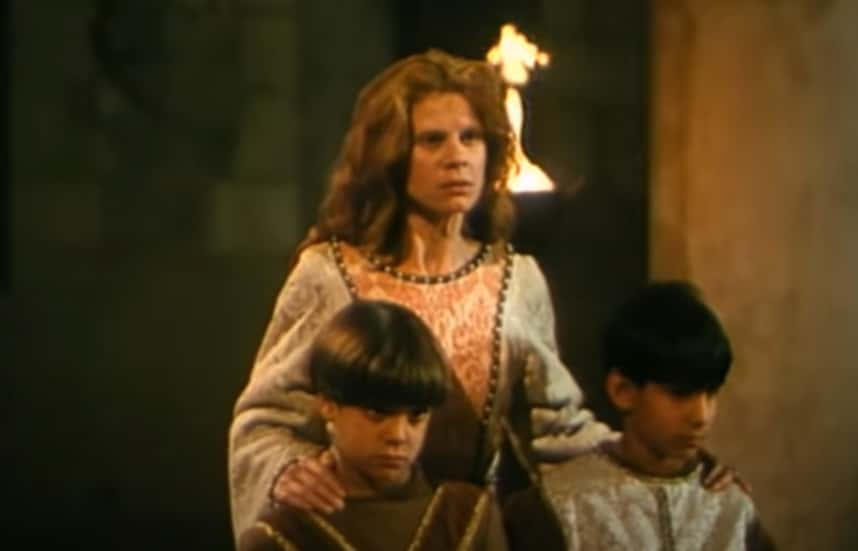 Ines of Portugal (1997), Instituto Português da Arte Cinematográfica e Audiovisual
Ines of Portugal (1997), Instituto Português da Arte Cinematográfica e Audiovisual
22. His Country Was In Trouble
Peter’s father predicted that this fight for the throne between Peter’s children wouldn’t just stay a family squabble. Most likely, their battle over the crown would lead to in-fighting that would tear the country apart. In between managing the in-fighting at home, and fighting for the throne of Castile, the chances that Peter could continue the family legacy was slim. With these thoughts in mind, Peter’s family and his courtiers came up with a plan.
 Ines of Portugal (1997), Instituto Português da Arte Cinematográfica e Audiovisual
Ines of Portugal (1997), Instituto Português da Arte Cinematográfica e Audiovisual
23. He Plotted Her Downfall
Peter’s father and his courtiers knew that they had to shake Peter free from Inês—and what they came up with was utterly disturbing. They could only think of one feasible way to "free" Peter I of Portugal from Inês’s influence: they would have to get rid of her…permanently. At first, Peter’s father was reluctant to agree with such an extreme plan.
As much as he hated Inês’s influence over Peter, she was still the mother to his grandchildren (albeit illegitimate ones). So, Peter’s father held off on this plan, but not for long.
24. He Cracked Under Pressure
Peter’s father made several more attempts to break Peter and Inês apart, but Peter stubbornly refused to allow his father to come between them. To make things worse for Peter, the court deemed Inês ineligible for queenship; in other words, she could never, ever be his bride, period. Under mounting pressure to keep his son from destroying the family dynasty, Peter’s father caved, and the plot to slay Inês was set into motion.
 Ines of Portugal (1997), Instituto Português da Arte Cinematográfica e Audiovisual
Ines of Portugal (1997), Instituto Português da Arte Cinematográfica e Audiovisual
25. He Never Saw Her Again
On January 7, 1355, Peter I of Portugal left his wife and children behind to go on a hunting trip, likely needing a chance to relax and get away from the uproar at court. Upon hearing of Peter’s trip, Peter’s father ordered three of his men—Pêro Coelho, Álvaro Gonçalves, and Diogo Lopes Pacheco—to pay Inês a "visit" at Santa Clara-a-Velha. Peter had no idea about the dark fate that awaited his lady love.
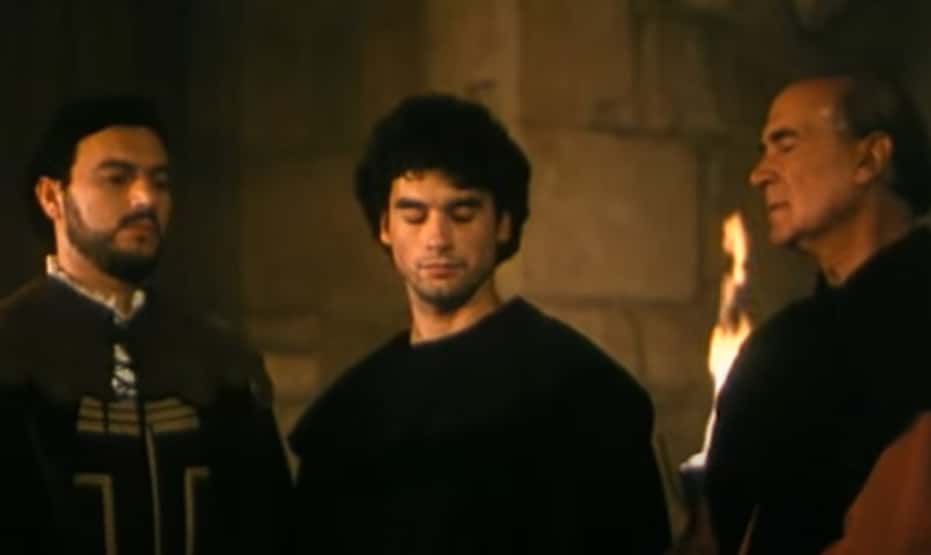 Ines of Portugal (1997), Instituto Português da Arte Cinematográfica e Audiovisual
Ines of Portugal (1997), Instituto Português da Arte Cinematográfica e Audiovisual
26. He Hesitated For A Moment
Peter’s love stood no chance against his father and the three men. As soon as Coelho, Gonçalves, and Pacheco arrived at Santa Clara-a-Velha, they surrounded her and her children. Legends state that she made one last, desperate plea to Peter’s father to spare her life; after all, she was the mother to Peter’s children. For a moment, Peter’s father paused, torn between his duties as a statesman and his feelings as a grandfather, but those feelings quickly passed.
27. She Drew Her Last Breath
Peter’s father turned to his three men and uttered four chilling words. He told them, "Do whatever you want," before leaving the room. As soon as the doors closed, the men decapitated Peter’s love on the spot, right in front of their children. With that terrible deed done, all Peter’s father could do was wait for Peter to return. There was no way that Peter wouldn’t forgive his dear old dad, right?
28. He Went Berserk
When Peter I of Portugal heard of the fate of his love, he went berserk with pain and fury. Peter wasn’t about to sit back and let this go unanswered, and forgiveness was absolutely not on the table. Seeing his rage, the three men who took Inês’s life wisely left the country, but Peter would deal with them later. For now, Peter concentrated on tearing his father’s legacy apart, and he knew exactly how to do it.
 The Dead Queen (2018), Persona Non Grata Pictures
The Dead Queen (2018), Persona Non Grata Pictures
29. He Went On A Rampage
For the next year, Peter revolted against his father, destroying the peace that he tried so hard to uphold. Bolstered by the support of Inês’s brothers—who were likely none too pleased by their sister’s decapitation—Peter swept through the country, devastating the lands between the Douro and Minho rivers. Peter’s father quickly raised his own sword at Peter in response, and the battle between father and son began.
30. He Couldn’t Lose
Whatever Peter’s feelings may have been towards his father, one thing was for sure: he stood no chance against him. Peter’s father had won peace for Portugal through his brilliance on the battlefield, and within a year, Peter found himself on the defensive. Still, Peter didn’t need to actually win against his father—he just needed to cause as much chaos as possible. Peter I of Portugal was going to get his revenge, no matter the cost.
 The Dead Queen (2018), Persona Non Grata Pictures
The Dead Queen (2018), Persona Non Grata Pictures
31. He "Forgave" His Father
Some sources say that it wasn’t until Peter I of Portugal began sieging the city of Porto that his mother, the Queen, finally had enough. Peter’s mother intervened, determined to end the fighting between Peter and his father. She successfully brokered peace between the two and even got Peter to "forgive" his father for slaying Inês. All’s well that ends well, right? Unfortunately for the royal family, tragedy struck two years later.
32. He Sought Revenge
By 1357, Peter’s father was on his last legs. The combination of age, stress over Peter’s scandal, and subsequent fighting finally wore him down. On May 28, 1357, the royal family buried Peter’s father in the Lisbon Cathedral, and the crown passed onto Peter. The newly crowned King eventually began reforming parts of Portugal, but that came later.
First, Peter had some unfinished business to take care of.
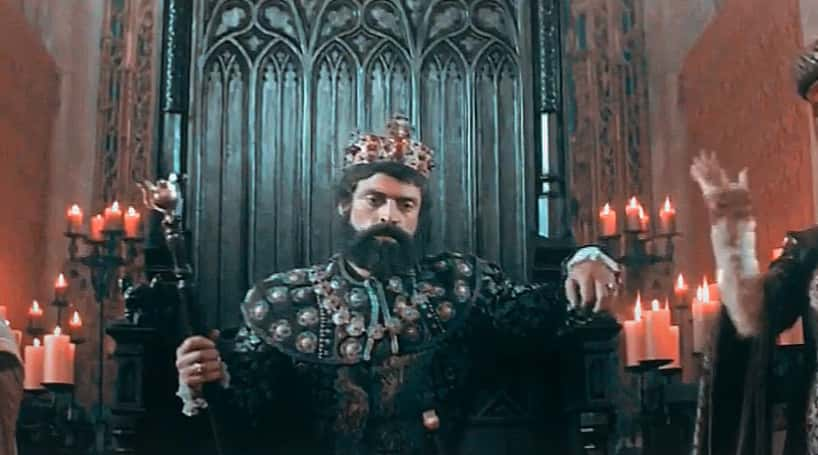 The Dead Queen (2018), Persona Non Grata Pictures
The Dead Queen (2018), Persona Non Grata Pictures
33. He Was A Just King
With the crown on his head, Peter went about doing his duty as a king. Peter I of Portugal turned out to be a surprisingly decent and arguably progressive king, despite his, err, "unorthodox" past behavior. In 1361, for example, he reformed the administration of justice, curbing abuses of power by his nobles while enhancing royal power at the same time. And that wouldn’t be the only thing he did to stamp out corruption.
 The Dead Queen (2018), Persona Non Grata Pictures
The Dead Queen (2018), Persona Non Grata Pictures
34. He Made Many Enemies
By 1361, Peter had to solve the issue of fake papal documents being circulated through his kingdom. Since Papal Bulls could grant individuals land, titles, and protection, Peter I of Portugal had a vested interest in making sure that all Papal Bulls were authentic. To that end, Peter enacted the Beneplácito Régio in 1361, forbidding the publication of Papal Bulls without his express consent. Let’s just say that the clergy weren’t too happy with this turn of events…
35. He Had A Secret Lover
Peter had made the clergy his enemy, and he was about to anger the nobles too. It turned out that—surprise!—Peter took on a lover named Teresa Lourenço, shortly after the slaying of Inês. The short-lived union resulted in a son named John, who Peter now wanted to make the Master of the Order of Avis. This granted Peter’s illegitimate son a powerful title. Although Peter’s son did manage to get the title, it didn’t exactly make Peter any friends at court.
36. His Court Feared Him
Despite Peter’s actions, there was very little that anyone did to stop him. Instead, all the nobles could do was complain, and give Peter I of Portugal an unflattering and slightly overdramatic nickname: "Peter the Cruel". Still, Peter probably knew his reputation wouldn’t hold them back for long, so he made a brilliant move to keep them complacent.
37. He Kept His Court Quiet
Although Peter I of Portugal made a bid for the throne of Castile in the past and even helped Castile fight against Aragon from 1358 to 1360, he thought better of it by 1363. From then on, Peter kept his kingdom neutral, ironically restoring the peace that his father tried so hard to keep intact. Peace also helped to keep his court happy, and for ten years, Peter ruled with very little opposition. Except for those who opposed his more...brutal methods of dealing with the past.
38. His Justice Was Brutal
Remember how Peter "forgave" his father for what he did to Inês? There’s a reason why there are quotation marks; see, Peter (who, by now, earned the title "Peter the Just") wasn’t just going to let go of the fact that the love of his life took an early trip to the grave. He was going to make sure that Inês got her justice, even if it meant getting his own hands dirty.
What Peter did next was absolutely bone-chilling.
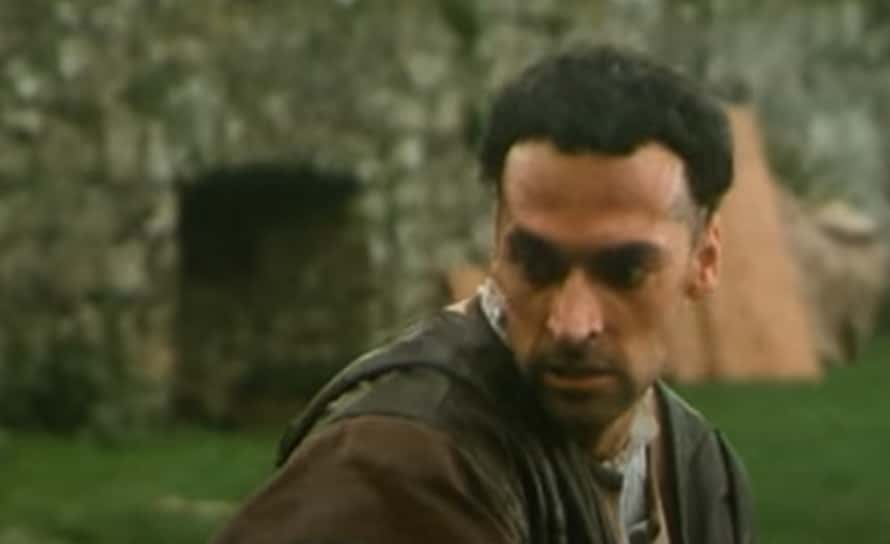 Ines of Portugal (1997), Instituto Português da Arte Cinematográfica e Audiovisual
Ines of Portugal (1997), Instituto Português da Arte Cinematográfica e Audiovisual
39. He Dragged Them Back
Peter I of Portugal immediately set out to find the three men that took Inês’s life—and his revenge was swift and brutal. One managed to escape to France, but he eventually found two of them hiding in Castile. Peter dragged the two from Castile, kicking and screaming, back to Portugal in 1361. Peter was about to carry out justice for Inês.
The way he went about it was so shocking that it would be forever immortalized in art, literature, and operas.
 The Dead Queen (2018), Persona Non Grata Pictures
The Dead Queen (2018), Persona Non Grata Pictures
40. He Got His Hands Dirty
Peter I of Portugal wasn’t content with just lopping off the heads of the two men—that would be much too easy. Instead, Peter publicly ripped one man’s heart out through his back and ripped the other man’s heart out through the front. Some legends claim that Peter watched the two men getting their hearts ripped out while having dinner, while others claim he ripped their hearts out himself.
Either way, Peter got his revenge—except he wasn’t quite done yet.
41. No One Challenged Him
Next, Peter I of Portugal announced that he secretly married Inês back in 1354, against his father’s wishes. While nobody else seemed to be able to corroborate this little fact, no one really wanted to argue with the man that just ripped out the hearts of two men, so most members of his court decided to let it go. However, legitimizing Peter’s marriage to Inês led to a whole host of consequences for Peter, his family, and the royal court.
42. He Changed Everything
First, Peter’s marriage to Inês meant that all of Peter and Inês’s children were legitimate, putting some of them in line for the throne. Second, it meant that Inês was, technically, a queen by marriage, but never got to enjoy the prestige and trappings of being a queen. Don’t worry though—Peter had a plan to fix that. After all, he would do anything for Inês, even if it meant doing something dark and disturbing.
 The Dead Queen (2018), Persona Non Grata Pictures
The Dead Queen (2018), Persona Non Grata Pictures
43. He Forced Them To Kneel
If you thought the story about the way Peter took out Inês’s killers was gruesome, it was nothing compared to what he did with her body. The story goes that Peter, in an effort to have Inês officially recognized as a queen, exhumed her body from her grave, sat her on the throne, dressed her with a diadem and royal robes, and forced all his vassals to approach and kiss her decaying hand.
While this is likely a myth, the existence of this myth really shows how deep Peter’s love for Inês was.
 The Dead Queen (2018), Persona Non Grata Pictures
The Dead Queen (2018), Persona Non Grata Pictures
44. He Re-Buried His Love
So Peter I of Portugal probably didn’t play dress-up with Inês’s lifeless body, but he did exhume her and re-buried her at the Monastery of Alcobaça—but that’s not all. Peter ordered that their tombs face each other in the royal monastery. He believed that the two of them would rise again at the Last Judgment, and wanted them to see each other when they opened their eyes once again. It was a sweet, if slightly disturbing, gesture.
45. His Love Was Eternal
After ten years of rule, Peter I of Portugal joined his beloved Inês at the Monastery of Alcobaça. Both of their tombs are magnificent; Peter’s, in particular, features a carving of the man himself with sword in hand, flanked by angels. Most touching of all, though, is probably the little phrase on the marble, probably meant for Inês; it reads, "Até o fim do mundo..". or, "Until the end of the world..".
46. His Family’s Future Was Bleak
After Peter’s passing, the crown went on to his son, Fernando, but that wasn’t the end of his family’s troubles. Poison likely took the life of Peter’s son in 1383, and since Fernando didn’t leave a male heir behind, it threw Portugal into utter chaos. In an ironic twist of fate (and after much in-fighting between Peter’s surviving sons), a victor emerged. John, the son that came about due to Peter’s short fling with Teresa, eventually took the crown.
47. Her Ghost Searches For Him
As if the slaying of Peter’s love wasn’t already tragic enough, some myths associate Inês’s tragedy with the Quinta das Lágrimas, which in English means "The Estate of Tears". The legends claim that her blood still stains the spring at this estate, causing the stone bed to look red. To this day, you may hear Peter’s love crying on the grounds, or you may even see her spirit wandering the estate, searching for Peter.
48. Their Story Resonates To This Day
Even though hundreds of years have passed, the tragic tale of Peter I of Portugal and Inês de Castro still inspires artists around the world today, and even made its mark on the day-to-day life of the Portuguese. Operatic works inspired by their life come in English, German, and French, and there is even a saying that you may hear the Portuguese use: "Agora é tarde; Inês é morta".
49. He Has A Bloodthirsty Counterpart
Due to his titles of "Peter the Just" and "Peter the Cruel," people often confuse Peter I of Portugal with Peter of Castile, who also bears the same titles. While the two briefly met, the differences between the two were night and day. How different? Let’s just say that Peter of Castile had a lot more blood on his hands, and probably deserved the title of "Peter the Cruel" much more than Peter I of Portugal did.
50. He Honored His Love
According to one chronicler, the procession that Peter arranged to carry the late Inês from Santa Clara-a-Velha to the royal monastery of Alcobaça was nothing short of extravagant. A number of horses, noblemen, maids, and clergymen escorted her, while a thousand men kept her body lit up in the light of candles. So impressive was the ceremony that it was as if, according to another chronicler, that "Inês de Castro was led to Alcobaça between two lines of stars".



